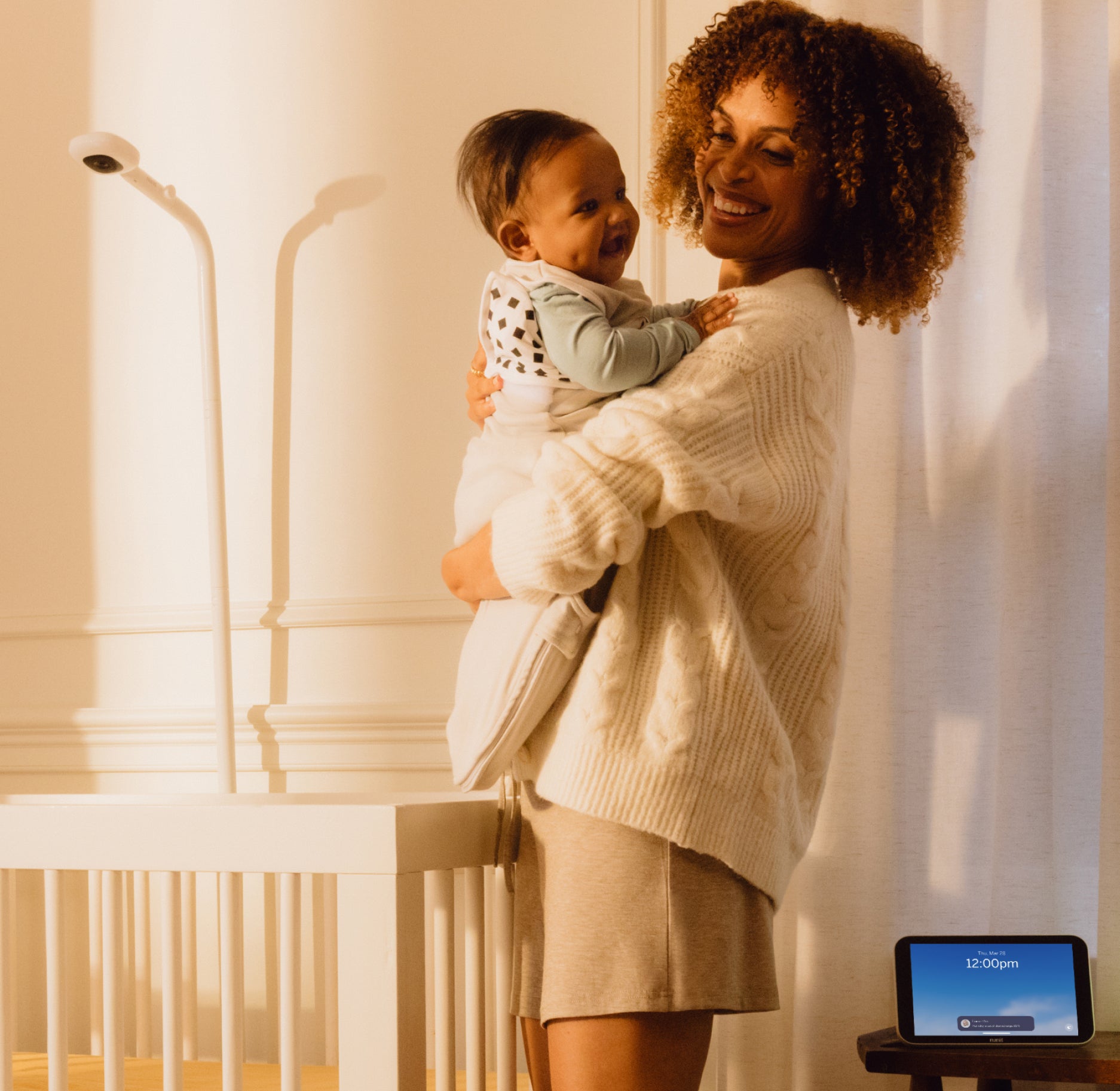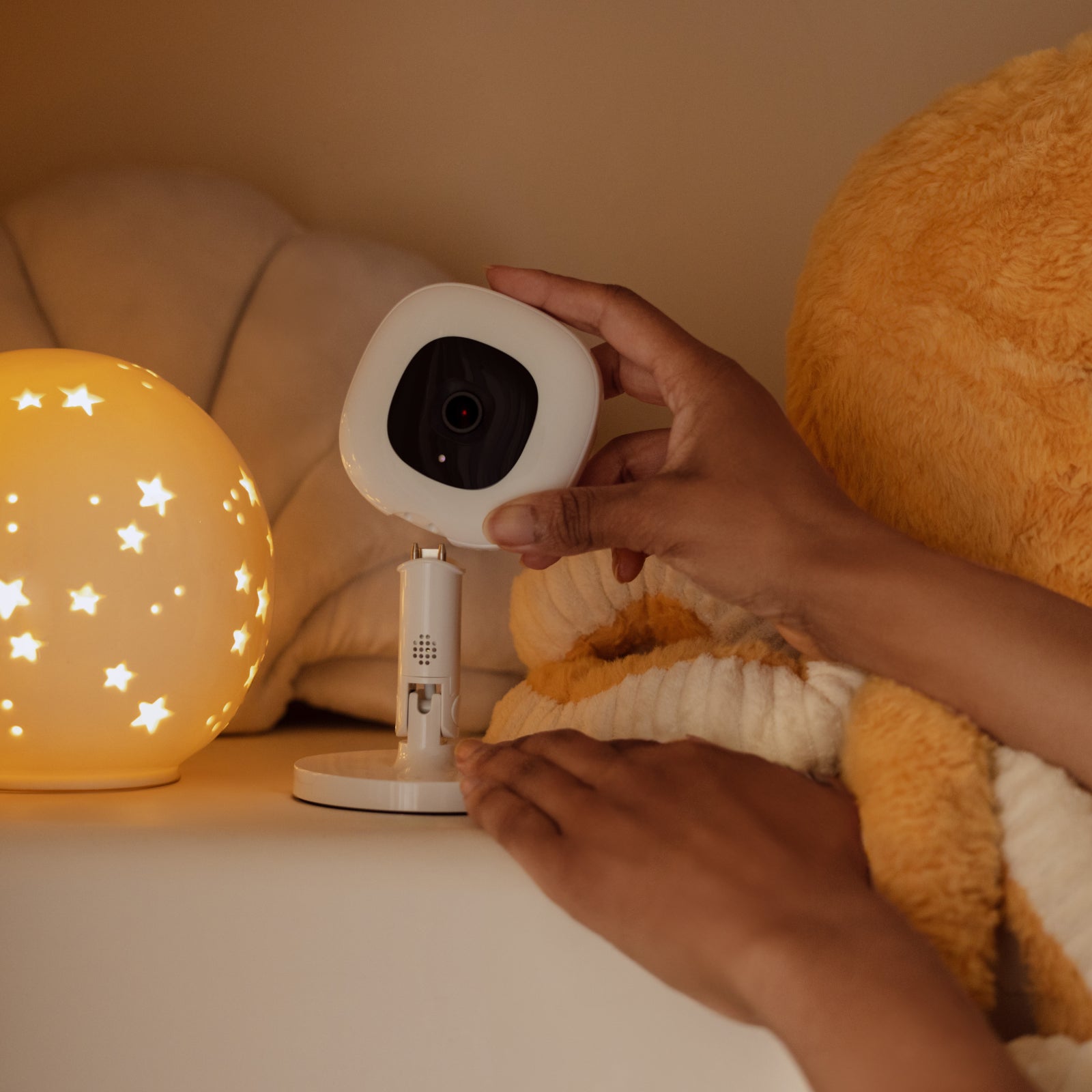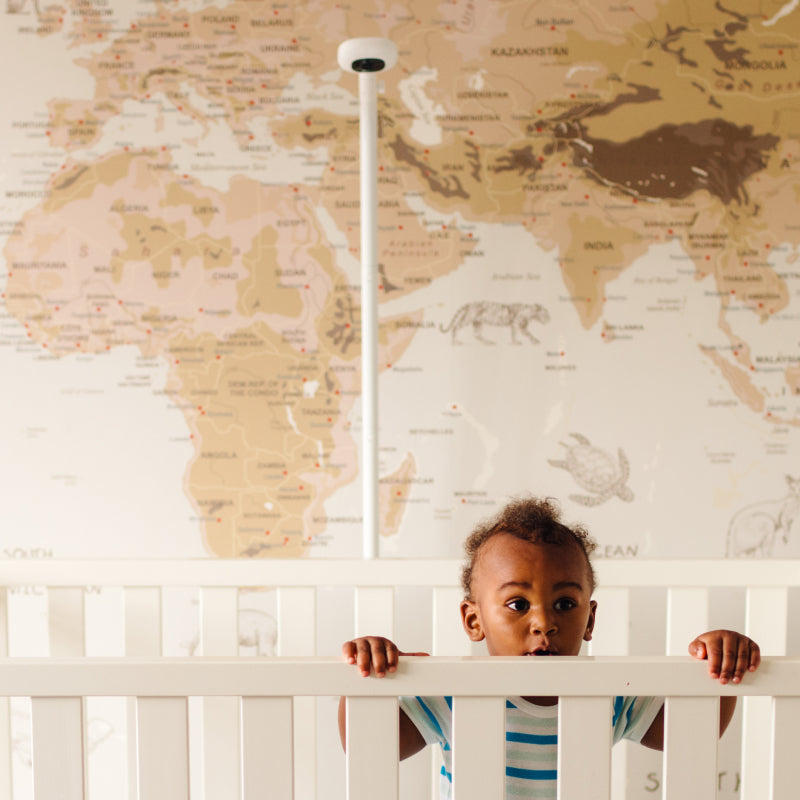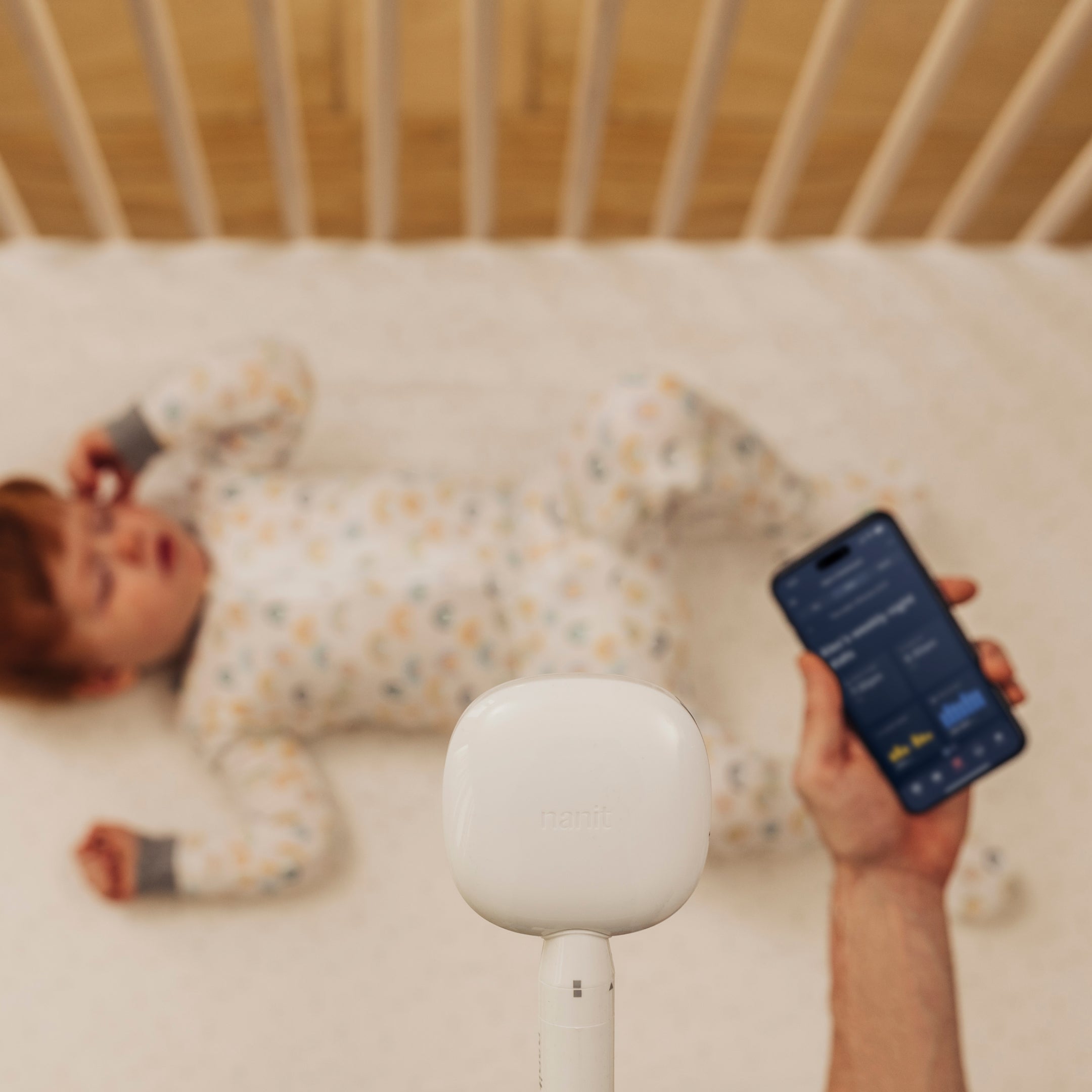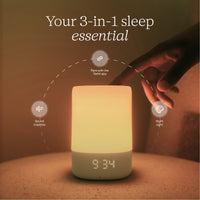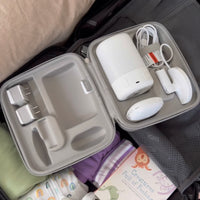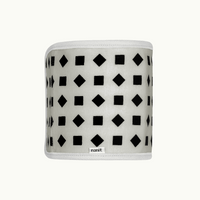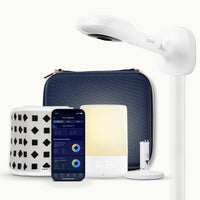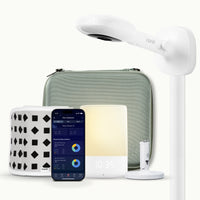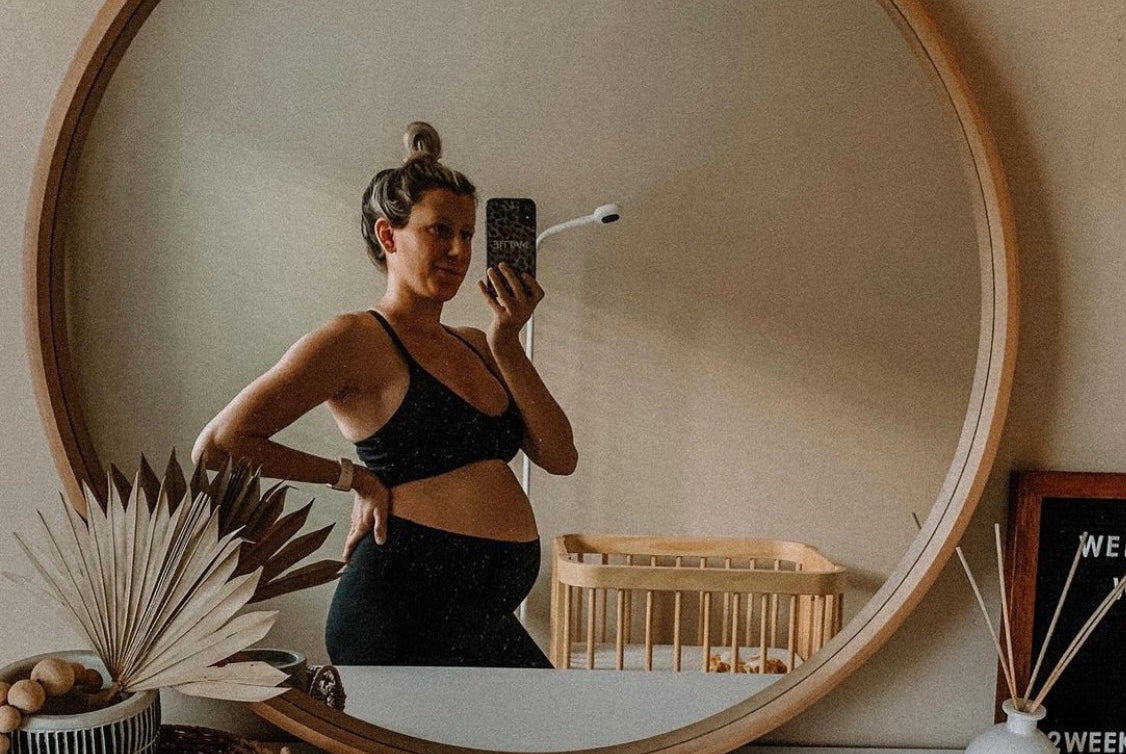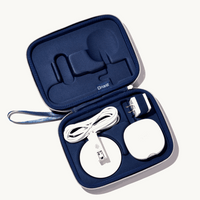During your third trimester, you’re getting excited and eagerly counting down the days until you get to meet your baby. What you’re probably not doing a lot of? Sleeping.
The third trimester has already introduced you to a few unique obstacles: needing help to put on your sneakers, struggling to reach the M&Ms on the highest shelf, and seeing your toes. Coupled with the sudden elusiveness of sleep, it’s enough to wonder if you’ll make it through the pregnancy with your sanity intact.
Well, hold onto those M&Ms— here’s everything you need to know about sleeping during the third trimester so you can catch as many zzz’s as possible before your little one arrives.
The challenges of sleeping in the third trimester
From aches and pains to multiple nightly bathroom trips, the list of third trimester symptoms that can interrupt your sleep goes on and on. Fortunately, there is a light at the end of the tunnel—that special moment when you meet your baby.
Until then, let’s explore some of the common sleep problems associated with the third trimester and how they can impact your overall sleep quality:
- Heartburn and indigestion. Approximately 50% of women in their third trimester experience heartburn, which causes an uncomfortable burning sensation in the throat and esophagus. While you may be all too familiar with heartburn during the day, it often worsens whenever you’re lying down and causes enough discomfort to keep you from sleeping.
- Shortness of breath. As your baby grows, your uterus expands to keep your little one comfortable until they’re ready to be born. As a result, your uterus pushes upward into your abdomen, reducing the amount of space you have to create oxygen. The result: occasional breathlessness. The problem may become more prevalent at night when certain sleeping positions put more pressure on your diaphragm and lungs.
- Discomfort and pain. With a quickly growing belly, it can become increasingly challenging to find a comfortable position in bed. Sometimes, your baby puts pressure on your back, abdomen, or hips, which can add to the problem. In addition, elevated progesterone levels and relaxin cause your muscles to relax your ligaments, leading to back and pelvic pain.
- Frequent urination. It never fails: You pee before bedtime and carefully roll yourself into bed only to be awoken a few hours later by an unfair demand from your bladder. You can thank your growing uterus and tiny tot for pushing on your bladder at all hours of the day (including every few hours at night).
- Snoring. It's not uncommon for snoring to become more noticeable during pregnancy. While it can be disruptive, especially for your sleep partner, it's usually not a cause for concern. However, if snoring is accompanied by other symptoms like gasping or pauses in breathing, it could be a sign of sleep apnea, a condition that should be discussed with your healthcare provider.
How to get more sleep in the third trimester
While you’re not likely to be getting the best nights of sleep ever during these last few months, you can certainly improve your chances of decent-enough sleep with a few well-planned tips:
- Use body pillows. They’re at the top of the list for a reason. Body pregnancy pillows provide support by relieving pressure wherever you’re feeling discomfort, such as your back, hips, or knees. When you’re on your side, place a pillow under your belly to reduce strain on your back.
- Elevate your upper body. This tip is especially useful if you’re experiencing heartburn. To reduce your symptoms, prop up your shoulders and head with an extra pillow or two. You can also treat yourself to a wedge-shaped pillow, which fits oh-so-comfortable between your knees.
- Limit fluids before bed. It may seem like a no-brainer, but it’s easy to over-indulge in your favorite sleepytime tea or flavored water ahead of sleep. Cut back on the drinks an hour or two before bedtime, and you may save yourself a few trips to the bathroom during the night. If you’re staying hydrated throughout the day, cutting back before bed is perfectly fine, and you can keep a glass of water on your nightstand (just in case).
Create a relaxing bedtime routine
You’re performing the incredible task of growing a human, so remember to treat yourself to a little R&R before bedtime—you deserve it.
Not sure where to start? Check out these activities to help you unwind before bed:
- Take a warm bath. Luxuriate in a warm bath with Epsom salt to ease any muscle tension. If you have a few extra minutes to spare, light a few candles before you get in, play some of your favorite relaxing tunes, or read a chapter of your latest book club selection.
- Do gentle stretches. It’s normal for a pregnant woman to experience random aches and pains in their back, hips, and other places. So, doing a few light stretches at the end of the day can feel incredibly refreshing. This simple practice can release any tension you're currently experiencing, relax your muscles, and improve blood flow.
- Practice gratitude. As your due date nears, it’s natural to feel a combination of excitement and anxiety. To counteract any unwanted nerves and improve your mental health, try reflecting on the positive parts of your day, big and small. You can even write a gratitude list in a journal to look back on when you need a quick burst of positivity.
- Limit screen time. You've likely heard it before (possibly while scrolling through your phone), but it’s nevertheless sage advice: Opt for screen-free entertainment in the evening, such as reading a book, listening to calming music, or meditating.
- Use aromatherapy. This holistic therapy has the potential to boost your overall well-being, reduce nausea, and make your room smell heavenly to boot—truly a win-win-win situation. If your doctor gives you the go-ahead, incorporate calming scents such as peppermint or lavender into your nightly routine.
Safety considerations for sleep during the third trimester
Sleeping in the first trimester of pregnancy? Pretty good. But in the third trimester, finding a comfortable sleep position can feel like playing bedtime Tetris as you maneuver four full-size pillows around your body to find a sleeping position that’s relatively tolerable.
If sleep positions feel restricted, that’s because, from a scientific (and physical) perspective, they are. So, while tips on sleeping during pregnancy in the third trimester might be limited, here are the positions that are and aren’t safest for you and your baby:
- Sleeping on your back. Some doctors recommend avoiding this position once you’ve entered your second trimester, while others say it’s acceptable until your third trimester. The concern is that lying on your back can decrease circulation to both your heart and your baby. Therefore, it's generally advised to avoid lying on your back for extended periods while sleeping during your second trimester of pregnancy and especially once you reach the third.
- Sleeping on your stomach. If your favorite sleep position is on your tummy, you’ve probably figured out by now that, logistically speaking, it’s simply uncomfortable to continue to do so. For this reason, we don’t suggest this position during your third trimester.
- Sleeping on your side. Finally, a position we can get be-side. During your second and third trimester, the safest and best sleeping position is on your side. In fact, many doctors recommend sleeping on your left side as it may increase blood flow to your uterus and baby (but the right side is okay, too!).
Transitioning to parenthood with Nanit
Before long, the days of looking up, “how to sleep comfortably during pregnancy third trimester” will be behind you. And, while good sleep may not always come easily in the days following the arrival of your newborn, one way you can support your baby (and yourself) is by setting up a baby monitor that goes above and beyond the call of duty.
With the Nanit app, you have the ability to monitor all of your little one’s sleep patterns, helping you to eventually establish a new sleep routine for everyone in the house. Additionally, with our Breathing Wear, you can easily monitor your baby’s breathing motion right from your phone. This provides additional reassurance while they're sleeping, allowing you to relax and get some much-deserved rest too.
At Nanit, we promote healthy sleep habits from the start, with Nanit babies sleeping an average of 10% longer each night. Join the other families who’ve entrusted us, and experience the difference Nanit can make.
Key takeaways
- The third trimester of pregnancy presents unique challenges for sleep due to discomforts like heartburn, shortness of breath, pain, and frequent urination.
- Strategies for improving sleep quality during the third trimester include using body pillows, elevating the upper body, and limiting drinks before bed.
- Create a relaxing bedtime routine, such as taking a warm bath, gentle stretching, practicing gratitude, and limiting screen time, to help promote better sleep during pregnancy.
Sources:
NIH. A prospective longitudinal cohort study: evolution of GERD symptoms during the course of pregnancy. https://pubmed.ncbi.nlm.nih.gov/23006768/
Harvard Health Publishing. Shortness of Breath in Pregnancy. https://www.health.harvard.edu/decision_guide/shortness-of-breath-in-pregnancy
UT Southwestern. 8 Third Trimester Pains and How to Deal with Them. https://utswmed.org/medblog/third-trimester-discomfort/
National Sleep Foundation. Screen Use Disrupts Precious Sleep Time. https://www.thensf.org/screen-use-disrupts-precious-sleep-time/
APA. Best Sleeping Positions While Pregnant. https://americanpregnancy.org/healthy-pregnancy/pregnancy-health-wellness/sleeping-positions-while-pregnant/
Sleep Foundation. Pregnancy Sleep Positions. https://www.sleepfoundation.org/pregnancy/pregnancy-sleep-positions




